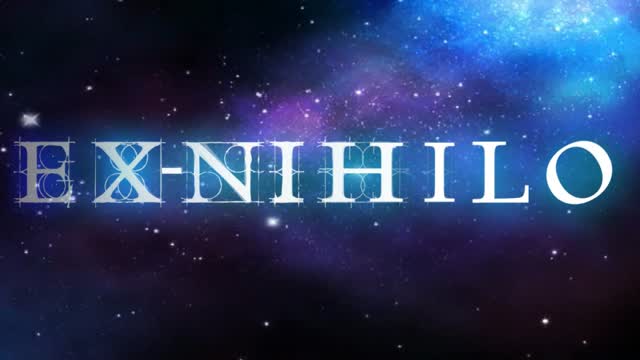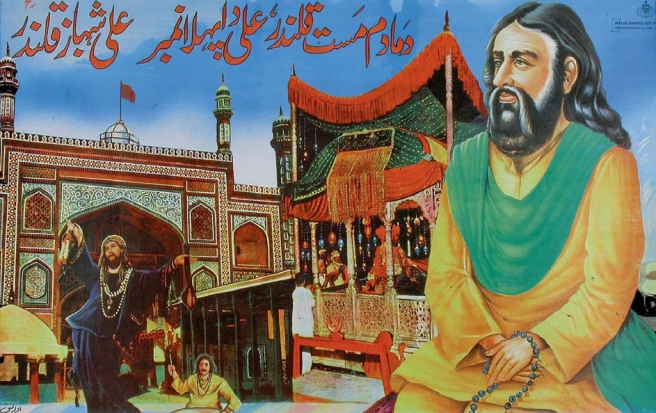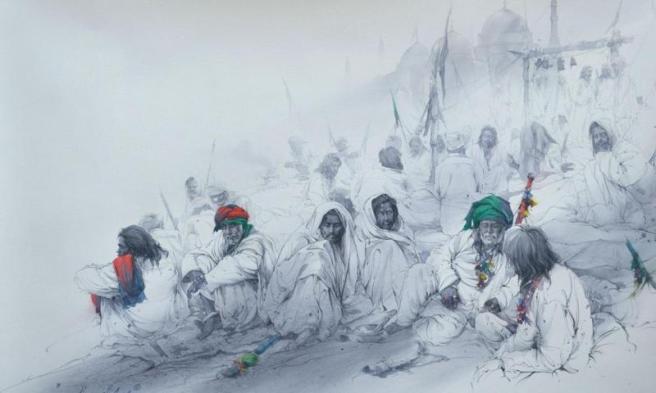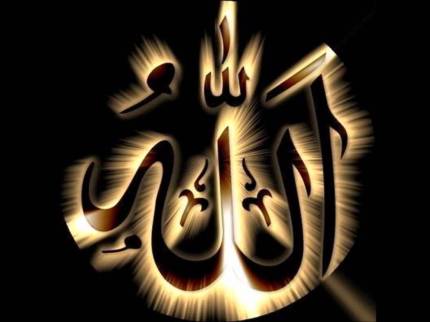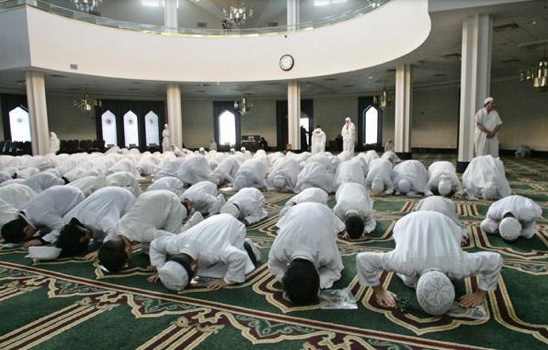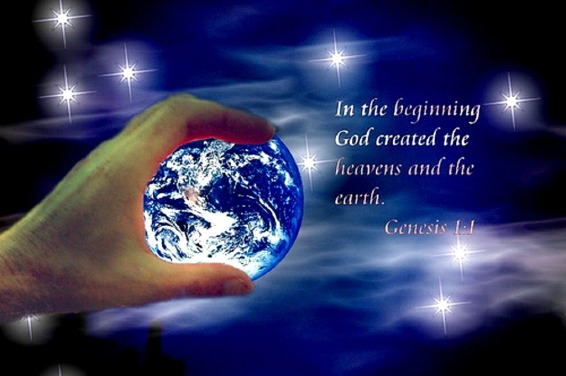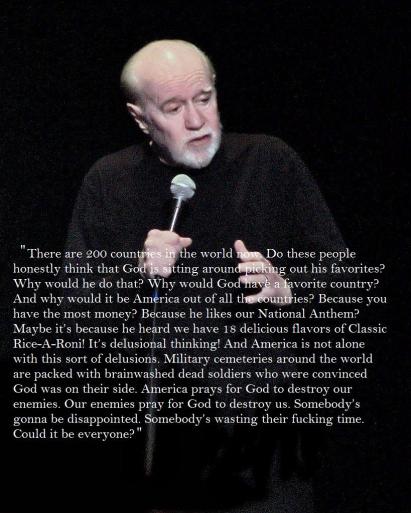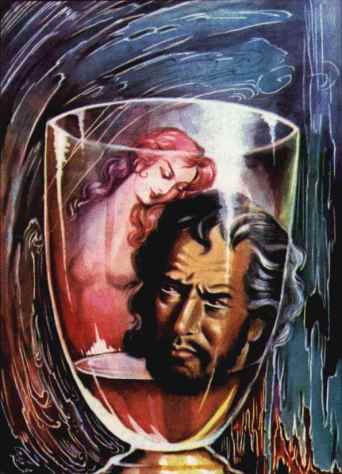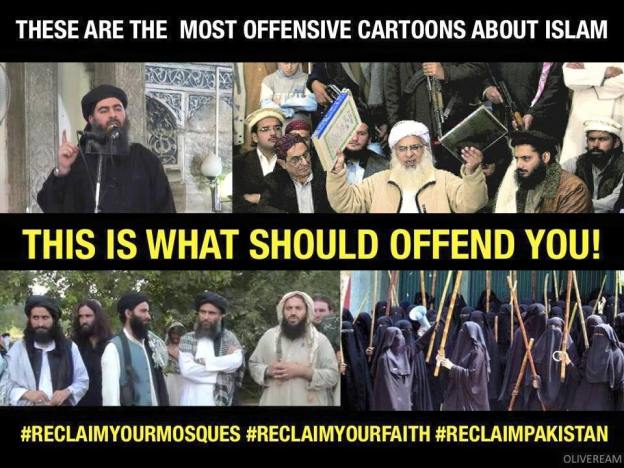One of the interesting myths in Islam is that of djinns. Djinns (also called Jinns or genies) are the mythological creatures found in the folklore of the people inhabiting the Arabian peninsula. For my generation, the big blue Genie in Walt Disney’s Aladin is a well-known comical representation of a member of these supernatural species.

As a child, I vividly remember being fascinated by djinns. One of my childhood dreams was to meet a djinn in person. My mother’s side of the family lives in a small, rural town in northern India. Situated in that town, is our ancestral haveli (a traditional Indian mansion) that was built over 500 years ago.
I frequented our ancestral home in India as a child and heard many a spooky tales of djinns that were rumored to have dwelled in the haveli and the town. There were stories of djinns appearing in human and animal form performing supernatural acts. There was stories of helpful and vengeful djinns. As a young child, I was hooked to these djinn stories and desperately wanted to meet a djiin, any djinn during my sojourn in India.
In fact, I had an interesting encounter which, at that point my life, was about as close a meeting I got with a djinn. My relatives in India told that djinns often take the shape of indigenous animals, birds, insects and reptiles. So, if I ever come across an animal that I might be afraid of, I should politely say the following sentence to the animal 3 times: “If you are someone else, please leave.”
If the animal does not leave after I’ve asked it to leave 3 times, it probably is just an animal. If it does leave, then it is a djinn.
Equipped with this knowledge to differentiate a djinn from an animal, I wandered around the haveli and the town, looking for suspicious looking animals. One fine afternoon, as I was about to end my stroll on the haveli’s rooftop, I noticed a dog lying just in front on the staircase that lead to the ground floor. I had to get the dog out of the way in order to go down. That’s when it clicked. If the dog was a djinn, all I had to do was to ask him politely to leave. And that’s what I did. As soon as I uttered my plea the first time, the dog got up from the entrance of the staircase and left quietly. I was completely taken aback by this event. As a child, this event reinforced the existence of djinns in my mind and made my belief stronger than ever. I also narrated this incident to almost anyone I met in India, re-affirming everyone’s belief that djinns dwelled in our haveli!
It wasn’t until much later that I became skeptical of the conclusion I had drawn that afternoon, ages ago. It may have been just a random incident, a one-off event. The sample size was too small to make a statistically valid correlation between my utterance and the dog’s departure. Even if the sample size was large, correlation does not imply causation. That’s Statistics 101.
In any case, my dream of physically encountering a djinn has never materialized possibly because are there are no djinns. The ontological status of djinns is almost as questionable as that of Allah and angels.
Interestingly, the Qur’an has a whole Surah about djinns called Al-Jinn. It’s the 72nd chapter of the Qur’an and contains 28 verses in total.
According to Dr. Israr Ahmed, who was an Islamic scholar from Pakistan, the chapter consists of two parts. The first part, which starts from the first verse up till the 15th (or 17th) verse is basically a dialogue of the djinns as revealed to Prophet Muhammad by Allah. The second part, from verse 16 (or 18) to verse 28, are the direct words of God and are general statements by Allah.
In the following few paragraphs, I will try to provide a personal summary of the entire Surah based on a mashup English translation of the Qur’an by Sahih International and Muhsin Khan.
The chapter starts of by speaking about a group of djinns, who listened to the ‘amazing’ Qur’an and believed in its contents. They (the djinns) believed that the Qur’an guides to the right course and teaches about nobleness of the Lord. They decided never to associate anyone with Allah and that Allah has not taken a wife or a son. The foolish ones have been saying wrong things about Allah.
The djinns thought that men and djinns would never utter a lie against Allah. But then there were men who took shelter with the djinns thereby increasing their sins and disbelief. Such men and djinns believed that Allah will not raise anyone. This is what the first 7 verses of the chapter say.
The next two verses (8 and 9) say that when the djinns sought to reach the heavens, they found the heavens filled with powerful guards and burning flames. The djinns used to position themselves in stations to hear. But now whosoever tries to listen found a burning flame lying in wait for him.
I personally find these verses confusing. Most interpreters of the Qur’an say that the djinns positioned themselves to hear (and steal portions of) the Qur’an from the heavens. Yet the nature of what djinns aimed at hearing is never made explicit by these verses of the Qur’an.
Verse 9 is also a particularly interesting verse. The ‘burning flame’ that drives away the eavesdropping djinns has been interpreted by some people as a Qur’anic explanation of comets.

The actual word in the Qur’an is شِہَابً۬ا, which can be transliterated as shahab(a). As with many of my earlier posts, following is a table that provides a list of translations of the word shahab:
| Translator |
Translation |
| Sahih International |
Burning flame |
| Muhsin Khan |
Flaming fire |
| Pickthall |
Flame |
| Yusuf Ali |
Flaming fire |
| Shakir |
Flame |
| Dr. Ghali |
Flaming (meteor) |
Some Muslim apologists take great efforts in explaining how it is scientifically possible for shahab to prevent djinns from accessing the heavens. I found this article that actually defines shahab as ray lights emitted from stars such as guided pulsar gamma rays! I feel completely stumped when reading such explanations.
Anyway, coming back to the Surah, verse 10 to 17 say that the djinns do not know if evil is intended for those on earth or if the Lord wants to set them on the right path. Some djinns are righteous and some are not. The djinns are divided in their ways. The djinns are also certain that they cannot escape Allah either on earth or through flight. The djinns have heard the guidance and believe in it. And whoever believes in the Lord will fear no deprivation or burden.
Amongst the djinns are the Muslims and the unjust (Al-Qasitun). The Muslims have sought the right course whereas the unjust would be the firewood of Hell. If the unjust had remained on the straight way, Allah would have given them abundant provision so as to test them. And whoever turns away from the remembrance of Lord, Allah will severely punish them.
The last 10 verses (Verse 18 to 28) basically are proclamations from Allah about His commandments, His knowledge and the fate of those who obey or disobey Him.
This concludes the entire chapter. The Surah is not particularly illuminating about the nature of djinns for someone like myself. It takes the existence of djinns as axiomatic. This is indeed problematic for a lot of people such as myself, who have a scientific and rational outlook. Like always, Qur’an is making claims that are very difficult to accept in modern times.
